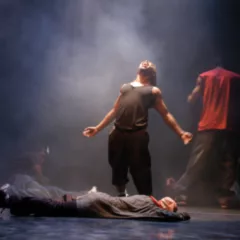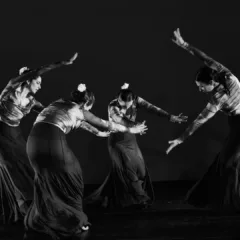You might not think of a library as a concert venue, but on September 14 the Free Library hosted a rollicking rhythm-fest of a concert. Philadelphia-based percussionist Pablo Batista and his 7-piece Latin Jazz Ensemble played to a packed house on the beautiful 4th floor west-facing skylight room as the sun set over the city skyline. The Library Company, Free Library, and Philadelphia Jazz Project collaborated to organize this performance, the penultimate in a series of events connected to Teresa Jaynes’s installation “A Common Touch,” on view at the Library Company through October 21. Mixing archival source material from the Library Company’s collection relating to the education of the blind in the nineteenth century with contemporary lived experience of visually impaired people, Jaynes and the Library Company’s Visual Culture Program tap into unconventional ways of experiencing art that take us beyond the purely visual.
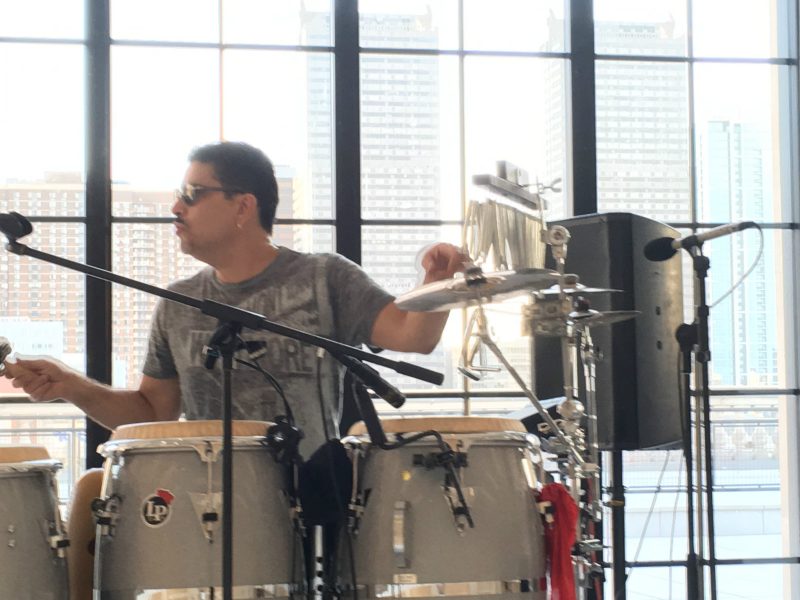
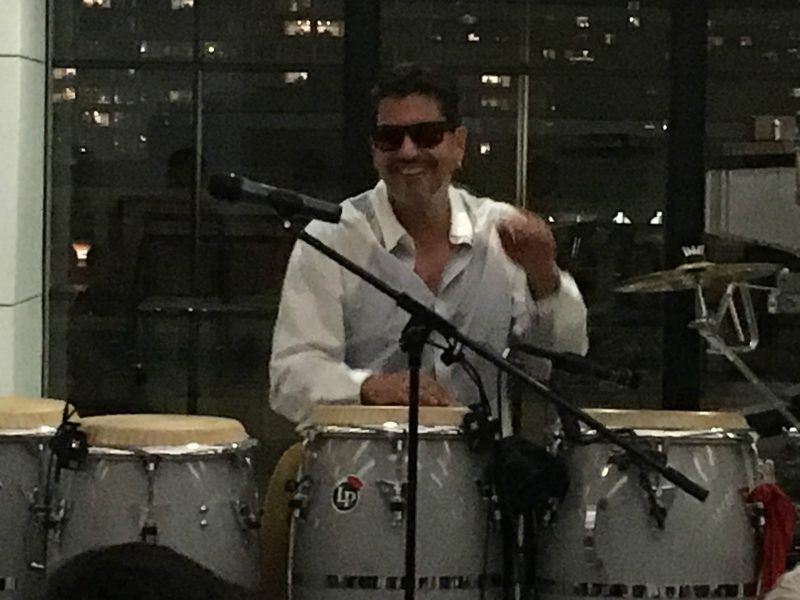
Movement, memory, and music
Like Jaynes’ multi-sensory engagement at the Library Company, Pablo Batista and his Latin Jazz Ensemble’s highly physical performance brought a multiplicity of movement, memory, and music together in a group of songs united by the varied and visceral rhythms of a staggering range of percussion instruments. Batista, who is legally blind, creates emotional and rhythmical music to be felt in the body, as well as heard through the ears.
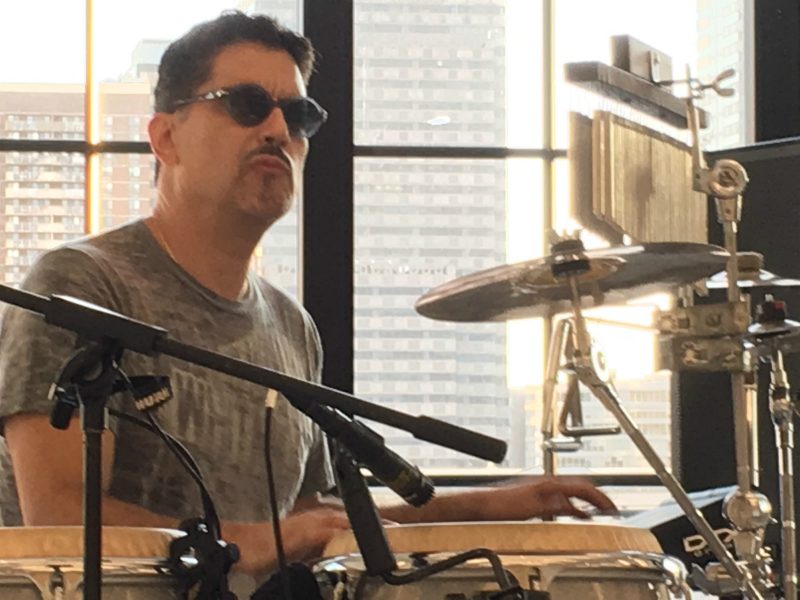
While he may have needed some assistance navigating his way to the stage, he was completely at home performing on stage, cracking jokes, telling stories, and keeping the enthusiastic audience enthralled with his playing. The Philadelphia Jazz Project’s mission to foster a community around the performance and enjoyment of jazz, celebrating the history and living legacy of jazz music in the city, contributed to the sense of a truly communal, shared experience in the public space of the library. The audience was lively and talkative, often calling out in response to Batista’s jokes or his references to musical greats with whom he has worked. There was humor and also reverence, and even a relative stranger to the local jazz scene like me was made to feel a part of something bigger. Now based in Philadelphia, Batista was born and raised in Bethlehem, PA, to parents who immigrated to the US from Puerto Rico. Steeped in the traditions of Afro-Caribbean music thanks to years of visits to Cuba, Batista creates a sense of intimacy with his audience, even as his musical references span the Spanish-speaking world.
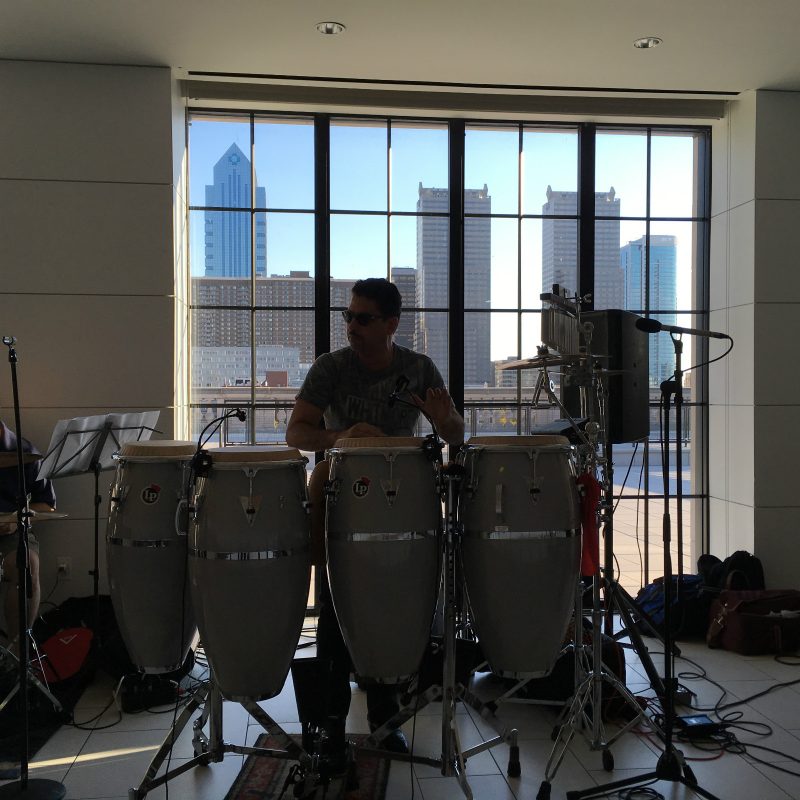
Living tradition
Two of the most outstanding songs in the set were “Afro Blue” and “Manteca.” Mongo Santamaría’s “Afro Blue” is a classic composition that has been covered by many of the greats, including John Coltrane. For this number, Batista incorporated what looked like a kind of shekere, a traditional west African percussion instrument covered by a net of beads. Playing with both the sound of the beads against the body of the instrument, and the drum skin itself, Batista’s performance was truly mesmerizing. “Manteca” is another classic, this time by Philadelphia jazz legend Dizzy Gillespie and Cuban percussionist Chano Pozo. As Batista explained to the audience, Gillespie was one of the first mainstream jazz musicians to introduce American audiences to the sounds of Cuban or Latin jazz in the 1940s. Pozo’s story is a sad one, which seemed to resonate with Batista. Having emigrated from Cuba in 1947 in search of a better life in the US, Pozo was killed outside a bar in New York at the age of 33 in a drug-related shooting. Batista is as much a student of the history of Latin jazz as he is of the music itself, and his sense of the tradition within which he is working really came through in his personal and deeply reverential treatment of songs like “Afro Blue” and “Manteca.”
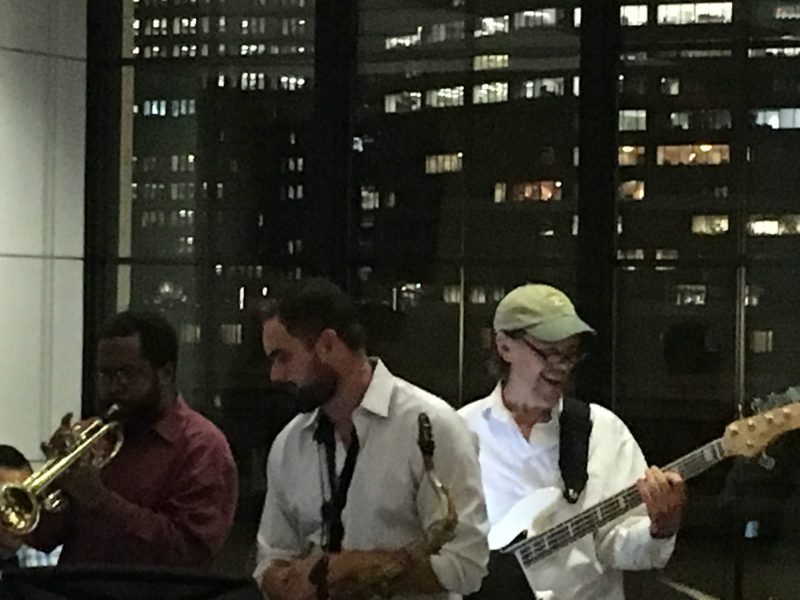
Congas, bongos, timbales, cowbells and cymbals–Batista moved seamlessly among them, accompanied by the skilled musicians of his Latin Jazz Ensemble, including Erik Johnson on drums, Chico Huff on bass, Jason O’ Mara on saxophone, Marcell Bellinger on trumpet, Nick Lombardelli on trombone, and Dennis Guevara on keyboards. Batista and his group were also joined by vocalist Carol Riddick, who performed a slowed down, vocally ornamented interpretation of “Summertime” unlike any version of the classic Gershwin song I have ever heard. Overall, this was a virtuosic yet completely accessible performance of Latin jazz, and the setting on the fourth floor of the Free Library overlooking the city skyline at sunset made for a memorable experience, on many sensory levels.
For more on Teresa Jaynes’s installation, “A Common Touch,” at the Library Company, see the review on Artblog by Tina Plokarz. The exhibition runs through October 21. The Library Company at 1314 Locust St is open 9–4:45 pm, Monday through Friday.




